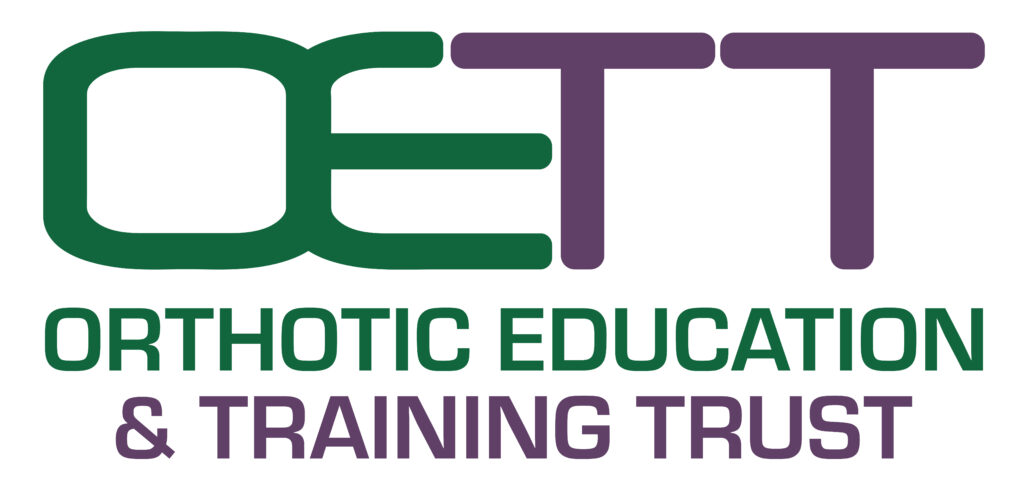
Funding Support for Education and Professional Development in Orthotics
The Orthotic Education & Training Trust (OETT) was established through a collaborative initiative involving the Department of Health, the British Surgical Trades Association, and the British Institute of Surgical Technologists. The Trust originally served as a private funding source to support the education and training of orthotists, with income generated via a levy on orthotic device sales to the NHS. While this levy ceased following the integration of orthotics education into government-funded degree programmes, the Trust continues to operate through the management of investment income derived from these earlier contributions.
Today, the primary focus of OETT is to provide financial support for postgraduate training and continuing professional development (CPD) across the orthotic workforce. According to the Trust’s founding deed, funding is prioritised for the education and training of:
- Practising Orthotists
- Practising Orthotic Technicians and Support Workers
- Practising Orthotic Managers
- Graduates progressing into apprenticeship programmes
- Technicians involved in the manufacture and fitting of surgical and medical orthotic devices
Funding Categories and Guidelines
1. Short Courses and Workshops
Applications are invited for reimbursement of fees, travel, and accommodation associated with short courses (up to three weeks in duration).
- Applications must be submitted via the OETT online funding application form.
- Full reimbursement is not guaranteed; decisions are made at the discretion of the Trustees.
- Claims and receipts must be submitted within three months of course completion.
2. Long-Term Training and Study
OETT provides between 50% and 67% of funding requests for longer-term training programmes, research fellowships, or international study visits to centres of excellence.
- Applicants may submit a case for higher support based on individual financial circumstances.
- All applications are assessed on merit.
3. Conferences and Seminars
Limited support is available for attendance at conferences with a strong educational focus. Funding (conference fee, travel, accommodation) is awarded on a first-come, first-served basis.
- Recipients are required to submit a post-event report for publication on the OETT website or in BAPOConnect.
- Exceptions: BAPO and ISPO conferences, where funding is provided for invited speakers only.
4. CPD Visits to Centres of Excellence
Funding for CPD visits is considered individually, particularly where the visit contributes to skill enhancement in specialist areas of orthotics.
Application Process and Contact
Before applying, all candidates must review the Important Information for Applications to OETT, available on the OETT website.
All applications must be submitted online and supported by:
- Required documentation and receipts
- A completed CPD Portfolio Form or equivalent evidence of learning objectives
For further information or assistance with grant applications, contact the OETT Administrator at:
📧 enquiries@bapo.com
OETT Contact Information
Orthotic Education & Training Trust
c/o British Association of Prosthetists and Orthotists (BAPO)
Clyde Offices, 2nd Floor
48 West George Street
Glasgow, Scotland, G2 1BP
📞 Tel: 0141 561 7217
📧 Email: enquiries@bapo.com